Product Name
RXSOL-81-6212-050
Product Type
Ammonium Fluoride
Company Details:
RX MARINE INTERNATIONAL
105, A wing , BSEL , TECH PARK.
VASHI ,NEW BOMBAY 400703 INDIA
Phone
+91 22 65113333 / 5555 / 9999
Fax
+91 22 2781 1318 :::AOH :0091 9821214367
Email
mail@rxmarine.com
SARA 313 Component
CAS Number
Purity
Dimension
Exposure
Limits
Ammonium Fluoride
CAS# 12125-01-8
~99.96%
W/V
None
established
May be fatal if inhaled, swallowed or absorbed thru the skin. Avoid all contact. Use with adequate ventilation. Wash thoroughly after use. Keep container closed.
Emergency Overview:Danger! May be fatal if swallowed or inhaled. Early symptoms include nausea, vomiting, diarrhea, and weakness. Later effects include central nervous system effects, cardiovascular effects, and death. Affects respiratory system, heart, skeleton, circulatory system, central nervous system and kidneys. Causes irritation and burns to skin, eyes and respiratory tract. Irritation and burn effects may be delayed. Harmful if absorbed through skin.
Inhalation:May Cause Irritation and Burns to the Respiratory Tract; Symptoms May Include Coughing, Sore Throat, and Labored Breathing. Irritation and Burning Effects May Not Appear Immediately.
Ingestion:May cause Salivation, Nausea, Vomiting, Diarrhea, and Abdominal Pain, Followed by Weakness, Tremors, Shallow Respiration, Cardopedal Spasm, Convulsions, and Coma. May Cause Brain and Kidney Damage. Death May Caused by Respiratory Paralysis. Affects Heart and Circulatory System.
Skin:Causes Severe Irritation and Possibly Burns to the Skin. May be Absorbed through the Skin. Effects may not Appear Immediately.
Eye Contact:Causes Irritation. May be Extremely Irritating with Possible Burns to Eye Tissue and Permanent Eye Damage may Result.
Chronic Exposure:Chronic Exposure may Cause Mottling of Teeth and Bone Damage(osteosclerosis) and luorosis. Symptoms of Floursis Include Brittle Bones; Weight Loss, Anemia, Calcification of ligaments,eneral ill Health and Joint Stiffness.
Aggravated by Exposure:Populations that Appear to be at increased Risk from the Effects of Fluoride are Individuals that Suffer from Diabetes insipidus or some forms of Renal Impairment.
May be fatal if inhaled, swallowed or absorbed thru the skin. Avoid all contact. Use with adequate ventilation. Wash thoroughly after use. Keep container closed.
SKIN:
Remove contaminated clothing. Wash exposed area with soap and water. if irritation persists, seek medical attention.
EYES:
Wash eyes with plenty of water for at least 15 minutes, lifting lids occasionally.
Seek Medical Aid.
INHALATION:
Remove to fresh air. If not breathing, give artificial respiration. If breathing is difficult, give oxygen
INGESTION:
If swallowed, induce vomiting immediately after giving two glasses of water. Never give anything by mouth to an unconscious person.
Fire Extinguisher Type:
Any means suitable for extinguishing surrounding fire
Fire / Explosion Hazards:
None Known
Fire Fighting Procedure:
Wear self-contained breathing apparatus and protective clothing to prevent contact with skin and clothing.
Absorb spill with inert material, then place in a chemical waste container. Dispose of in a manner consistent with federal, local law.
Spills: Ventilate area of Leak or Spill. Allow Only Qualified Personnel to Handle Spill. Clean-Up Personnel Require Protective Clothing and Respirator Protection from Vapors. Absorb Material with Paper Towel and Place in a Closed Contain for recovery or disposal Do Not Flush to Sewer! Decontaminate Liquid Resides in Spill Area with Sodium or Calcium Hypochlorite Solution. US Regulations (CERCLA) Require Reporting Spills and Releases to Soil, Water and Air in Excess of Reportable Quantities.
Store in a cool dry place. Do not get in eyes, on skin, on clothing. Wash thoroughly after handling.
Respiratory Protection
None required
Ventilation
Local
OTHER
Mechanical
Protective Gloves
Gloves to prevent skin exposure as rubber or vinyl
EYE PROTECTION
Splash Goggles
Other Protective Equipment
Wear appropriate clothing to prevent
skin exposure
BOILING POINT
Information not available
VAPOR PRESSURE
Not available
MELTING POINT
Information not available
VAPOR DENSITY
Not available
EVAPORATION RATE
1
Appearance /Odors
Colorless, odorless liquid
Flash Point
Not flammable
Specific Gravity
Information not available
Percent Volatile by
~90%
Evaporation Standard
Auto Ignition Temp
Not applicable
Lower Flamm. Limit in Air
Not applicable
Upper Flamm. Limit in Air
Not applicable
Solubility in Water
Soluble
STABILITY
Stable
CONDITIONS TO AVOID
see incompatibilities
MATERIALS TO AVOID
Potassium chlorate, Sodium nitrate, Chlorine trifluoride and calcium solution, Corrodes glass.
HAZARDOUS DECOMPOSITION PRODUCTS
Emits Hydrogen fluoride, NO and ammonia.
HAZARDOUS POLYMERIZATION
Will not occur
Conditions to Avoid
None known
Carcinogenic References: IARC Category – None, NTP Carcinogen – Known: No
Environmental Fate:No Information Found.
Environmental Toxicity:This material is not expected to be toxic to aquatic life. The LC50/96-hour values for fish are over 100 mg/l.
What ever cannot be Saved for Recovery or Recycling should be Managed in an Appropriate and Approved Waste Facility. Dispose of Container and Unused Contents in Accordance with Federal, State, and Local Requirements.
DOT Classification: UN3287, Toxic Liquid, Inorganic, n.o.s. (Ammonium Fluoride), 6.1, PG III
DOT Regulations may change from time to time. Please consult the most recent D.O.T. regulations.
Chemical Inventory Status –
Part 1:Ingrdient Ammonium Fluoride (12125-01-8)
TSCA Yes
EC Yes
Japan YES
Australia Yes
Chemical Inventory Status –
Part 2:Ingredient
Ammonium Fluoride (12125-01-8)
Korea Yes
DSL Yes
NDSL No
Phil. Yes
Federal, State & International Regulations –
Part 1: Ingredient.
Ammonium Fluoride (12125-01-8)
RQ No
TPQ No
List NO
Chemical Catg: No
Federal, State &
International Regulations –
Part 2:Ingredient
Ammonium Fluoride (12125-01-8)
CERCLA NO
261.33 No
8(d) No
Chemical Weapons Convention: No
TSCA 12 (b):No
CDTA:No PURE crystal
SARA 311/312: Acute: YES
Chronic: YES
Fire: No
Pressure: No
Reactivity: No
Australian Hazchem Code: 2X
Poison Schedule: None allocated
Danger! May be fatal if swallowed or inhaled. Early symptoms include nausea, vomiting, diarrhea and weakness. Later effectsinclude central nervous system effects, cardiovascular efffects and death. Affects respiratory system, heart, skeleton, circulatory system, central nervous system and kidneys. . Causes severe irritation to tissues of the mucous membranes, upper respiratory tract, eyes and skin. Persons with pre existing eye, skin or respiratory conditions may be more susceptible. Ingestion may cause tremors, shallow respiration, convulsions and coma. May cause brain and kidney damage. Death may be caused by
Revisions
NFPA
7/30/2010
0.1 updated msds to 16 section from 10 section msds. STN
0
The information herein is believed to be accurate and is offered in good faith for the user's consideration and investigation. No warranty either expressed or implied is made for the completeness or accuracy of the information whether originating from the above mentioned company or not. Users of this material should satisfy themselves by independent investigation of current scientific and medical knowledge that the material
|
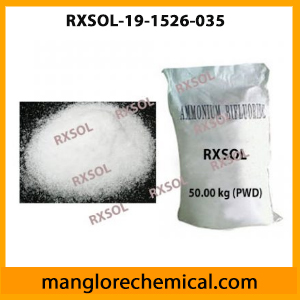



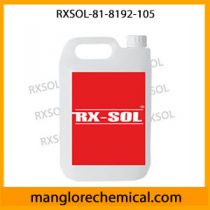
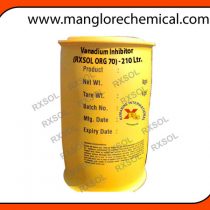
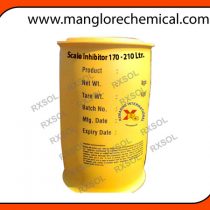
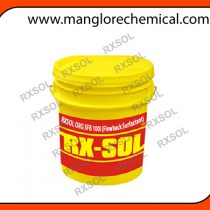

Reviews
There are no reviews yet.